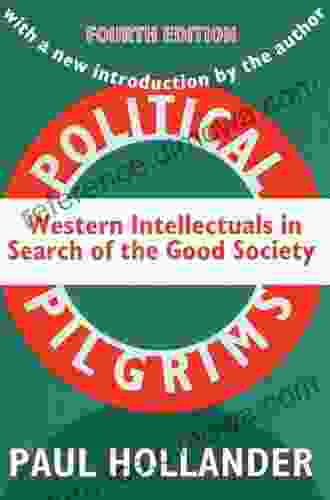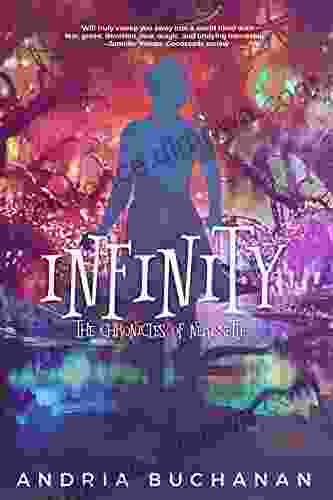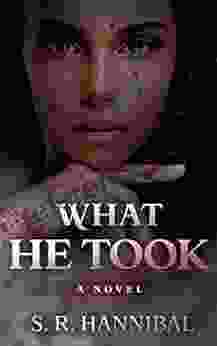Western Intellectuals in Search of the Good Society: A Journey of Ideas and Ideals

4.5 out of 5
| Language | : | English |
| File size | : | 5495 KB |
| Text-to-Speech | : | Enabled |
| Screen Reader | : | Supported |
| Enhanced typesetting | : | Enabled |
| Word Wise | : | Enabled |
| Print length | : | 626 pages |
Throughout history, Western intellectuals have grappled with the question of how to create a better society—a society that is just, equitable, and prosperous for all. This quest has led to the development of a wide range of ideas and ideals, from the utopian visions of Plato and Aristotle to the more pragmatic proposals of modern-day thinkers.
In this article, we will explore some of the key ideas that have shaped Western intellectuals' thinking about the good society. We will consider the different ways in which they have defined justice, equality, and freedom, and we will examine the various strategies they have proposed for achieving these goals.
The Platonic Ideal
Plato, one of the most influential philosophers of all time, believed that the good society was one that was ruled by wise and virtuous philosopher-kings. In his dialogue The Republic, Plato argues that the ideal state would be one in which the citizens are divided into three classes: the guardians, the auxiliaries, and the producers.
The guardians would be the ruling class, and they would be responsible for making and enforcing the laws. The auxiliaries would be the military class, and they would be responsible for protecting the state from its enemies. The producers would be the working class, and they would be responsible for producing the goods and services that the society needs.
Plato believed that the ideal state would be one in which each class performs its own function and does not interfere with the other classes. He also believed that the state should be ruled by philosopher-kings who are wise and virtuous, and who are dedicated to the pursuit of the common good.
The Aristotelian Ideal
Aristotle, another influential Greek philosopher, agreed with Plato that the good society is one in which the citizens are virtuous and the state is ruled by wise and just leaders. However, Aristotle believed that the ideal state would not be a monarchy, but a republic. In his book Politics, Aristotle argues that the best form of government is one in which power is shared among the citizens.
Aristotle also believed that the good society is one in which there is equality of opportunity for all citizens. He argued that all citizens should have the opportunity to develop their talents and abilities, and that no one should be prevented from achieving their full potential.
The Christian Ideal
Christianity has also had a profound influence on Western intellectuals' thinking about the good society. The Christian ideal of the good society is one in which all people are equal in the eyes of God, and in which all people are called to love one another. This ideal has inspired many social movements throughout history, including the civil rights movement and the women's suffrage movement.
Christian intellectuals have also made significant contributions to the development of economic thought. The concept of the "social contract," which is the idea that the government has a responsibility to protect the rights of its citizens, was first developed by Christian theologians such as Thomas Aquinas and John Locke.
The Enlightenment Ideal
The Enlightenment was a period of intellectual and cultural change that took place in Europe during the 17th and 18th centuries. Enlightenment thinkers such as Voltaire, Rousseau, and Montesquieu challenged the traditional authority of the Church and the monarchy, and they argued for the importance of reason and individual liberty.
Enlightenment thinkers also developed new ideas about the good society. They believed that the ideal state would be one in which all citizens are free and equal, and in which the government is based on the consent of the governed.
The Socialist Ideal
Socialism is a political and economic system that aims to create a more just and equitable society. Socialists believe that the means of production should be owned and controlled by the community as a whole, and that the profits from these enterprises should be distributed equally among all citizens.
Socialist intellectuals have developed a wide range of theories about the good society. Some socialists believe that the ideal society would be a stateless, classless society in which all people are equal. Others believe that the ideal society would be one in which the government plays a major role in providing social services and regulating the economy.
The Communist Ideal
Communism is a more radical form of socialism that aims to create a classless, stateless society in which all people are equal. Communists believe that the only way to achieve this goal is through a revolution that overthrows the existing social Free Download.
Communist intellectuals have developed a wide range of theories about the good society. Some communists believe that the ideal society would be one in which there is no private property and all goods and services are distributed according to need. Others believe that the ideal society would be one in which the government plays a major role in planning the economy and providing social services.
The Anarchist Ideal
Anarchism is a political philosophy that rejects all forms of government. Anarchists believe that the ideal society would be one in which there is no state, no private property, and no hierarchy. Anarchists argue that the only way to achieve this goal is through a revolution that overthrows the existing social Free Download.
Anarchist intellectuals have developed a wide range of theories about the good society. Some anarchists believe that the ideal society would be one in which individuals are free to cooperate with each other without the interference of the state. Others believe that the ideal society would be one in which there is no private property and all goods and services are distributed according to need.
The Utopian Ideal
Utopianism is a political philosophy that aims to create a perfect society. Utopians believe that the ideal society would be one in which there is no poverty, no crime, and no war. Utopians have developed a wide range of theories about how to achieve this goal, but all utopians share the belief that the ideal society is possible.
Utopian intellectuals have developed a wide range of theories about the good society. Some utopians believe that the ideal society would be one in which there is no state, no private property, and no hierarchy. Others believe that the ideal society would be one in which the government plays a major role in providing social services and regulating the economy.
The ideas and ideals of Western intellectuals have shaped the development of our societies in countless ways. The quest for the good society is an ongoing one, and it is one that will continue to inspire and challenge us for generations to come.
4.5 out of 5
| Language | : | English |
| File size | : | 5495 KB |
| Text-to-Speech | : | Enabled |
| Screen Reader | : | Supported |
| Enhanced typesetting | : | Enabled |
| Word Wise | : | Enabled |
| Print length | : | 626 pages |
Do you want to contribute by writing guest posts on this blog?
Please contact us and send us a resume of previous articles that you have written.
 Book
Book Novel
Novel Page
Page Chapter
Chapter Text
Text Story
Story Genre
Genre Reader
Reader Library
Library Paperback
Paperback E-book
E-book Magazine
Magazine Newspaper
Newspaper Paragraph
Paragraph Sentence
Sentence Bookmark
Bookmark Shelf
Shelf Glossary
Glossary Bibliography
Bibliography Foreword
Foreword Preface
Preface Synopsis
Synopsis Annotation
Annotation Footnote
Footnote Manuscript
Manuscript Scroll
Scroll Codex
Codex Tome
Tome Bestseller
Bestseller Classics
Classics Library card
Library card Narrative
Narrative Biography
Biography Autobiography
Autobiography Memoir
Memoir Reference
Reference Encyclopedia
Encyclopedia Greg Paramore
Greg Paramore Max Cooper
Max Cooper Achim K Krull
Achim K Krull Adam Selzer
Adam Selzer Ernle Bradford
Ernle Bradford Bernard R Gelbaum
Bernard R Gelbaum Frank Sasso
Frank Sasso Nicholas Bowling
Nicholas Bowling Edward A Bender
Edward A Bender Dennis Hastert
Dennis Hastert Dr Alexander Khomoutov Ph D
Dr Alexander Khomoutov Ph D Jeanine Michna Bales
Jeanine Michna Bales Susie Shellenberger
Susie Shellenberger Brian Marsh
Brian Marsh John Zagula
John Zagula Aaron Rabinowitz
Aaron Rabinowitz Akemi Dawn Bowman
Akemi Dawn Bowman Adam Pitluk
Adam Pitluk Kat Zhang
Kat Zhang Adam Blade
Adam Blade
Light bulbAdvertise smarter! Our strategic ad space ensures maximum exposure. Reserve your spot today!

 Demetrius CarterAdventures in the Wild Places: An Unforgettable Journey into Nature's Untamed...
Demetrius CarterAdventures in the Wild Places: An Unforgettable Journey into Nature's Untamed...
 Jace MitchellUnravel the Enigma of "Coney Island Monster": A Captivating Novel by Adam...
Jace MitchellUnravel the Enigma of "Coney Island Monster": A Captivating Novel by Adam... Harry CookFollow ·17.7k
Harry CookFollow ·17.7k Patrick HayesFollow ·18k
Patrick HayesFollow ·18k Robert Louis StevensonFollow ·2.5k
Robert Louis StevensonFollow ·2.5k Gabriel Garcia MarquezFollow ·19.9k
Gabriel Garcia MarquezFollow ·19.9k Vernon BlairFollow ·11.7k
Vernon BlairFollow ·11.7k Brady MitchellFollow ·9.6k
Brady MitchellFollow ·9.6k Diego BlairFollow ·13.1k
Diego BlairFollow ·13.1k Branson CarterFollow ·14.4k
Branson CarterFollow ·14.4k
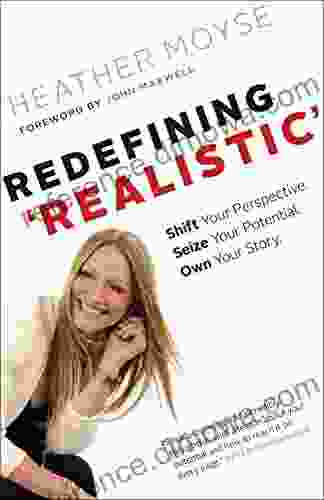
 Julio Cortázar
Julio CortázarShift Your Perspective, Seize Your Potential, Own Your...
A Transformative Guide to...
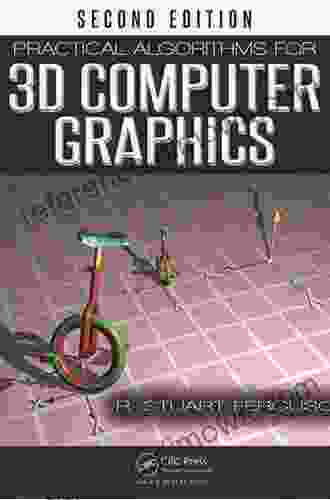
 Isaias Blair
Isaias BlairPractical Algorithms For 3d Computer Graphics: Unlocking...
In the realm of digital artistry, 3D computer...

 Joseph Heller
Joseph HellerClear Vision Through Cloudy Eyes: A Guide to Overcoming...
Have you ever felt...

 Leo Tolstoy
Leo TolstoyThe True Story of My Fairygodparent Who Almost Killed Me...
Book Description In this captivating...

 Earl Williams
Earl WilliamsCanada 10 Must Visit Locations: A Captivating Journey...
Prologue: A...
4.5 out of 5
| Language | : | English |
| File size | : | 5495 KB |
| Text-to-Speech | : | Enabled |
| Screen Reader | : | Supported |
| Enhanced typesetting | : | Enabled |
| Word Wise | : | Enabled |
| Print length | : | 626 pages |


